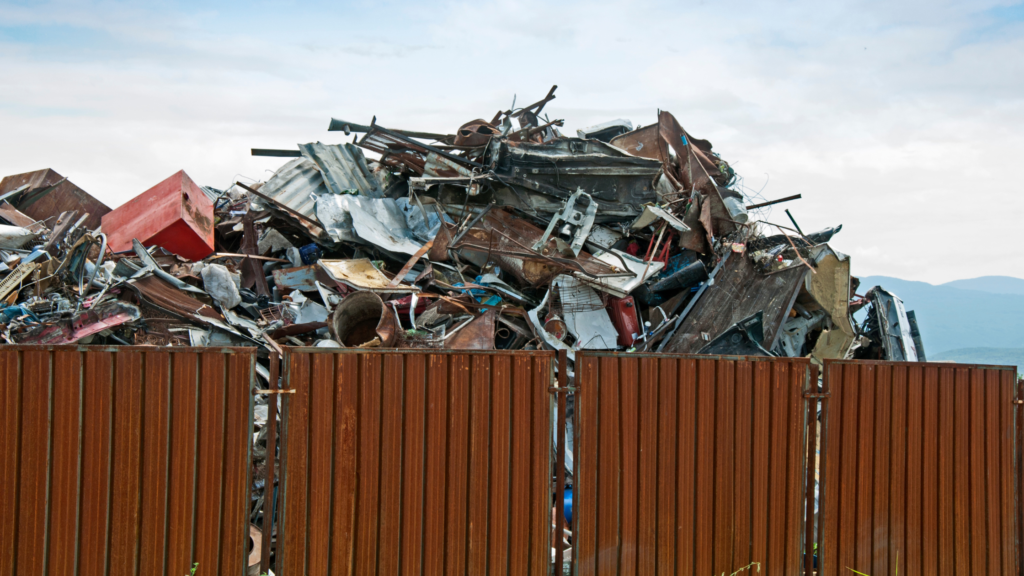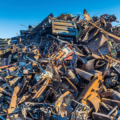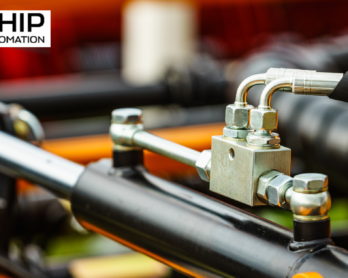In the bustling landscape of Indian industry, metal scrap business in india stands as crucial contributors to both economic growth and environmental sustainability. The dynamics of metal scrap businesses in India wield a significant influence on the environment, the economy, and the circularity of resources. Embracing sustainable practices within this sector not only fosters a cleaner environment but also fuels a more resilient and resource-efficient economy.
The Significance of Metal Scrap Recycling
Environmental Benefits
Metal scrap recycling plays a pivotal role in mitigating environmental impact by reducing:
Energy Consumption:
Recycling metal requires significantly less energy compared to extracting and refining raw materials. This results in diminished energy consumption and reduced greenhouse gas emissions, contributing to mitigating climate change.
Pollution Reduction:
Chemical pollution is curbed as the recycling process minimizes the release of harmful substances into the environment, safeguarding ecosystems and human health alike.
Resource Conservation:
The reuse of scrap metal conserves natural resources, curbing the need for extensive mining activities that often lead to environmental degradation and habitat destruction.
Economic Advantages
Revenue Generation:
Metal scrap businesses contribute significantly to the economy by providing a steady stream of raw materials for manufacturing industries. This reduces reliance on costly imports and creates a robust domestic supply chain.
Employment Opportunities:
The recycling industry, including metal scrap businesses, offers employment opportunities across various skill sets, fostering local economic growth and sustainability.
Sustainable Practices in Metal Scrap Businesses
Efficient Collection and Segregation
Implementing efficient collection systems and segregation processes at the source optimizes the quality and quantity of scrap collected. This includes:
Awareness Campaigns:
Educating individuals and industries about segregating and disposing of metal scrap responsibly encourages participation in recycling efforts.
Collaboration with Industries:
Partnering with manufacturing units to collect and recycle their metal waste promotes a circular economy by closing the loop on material usage.
Technological Advancements
Leveraging innovative technologies in metal scrap processing enhances efficiency and reduces environmental impact:
Advanced Sorting Techniques:
Utilizing cutting-edge sorting technologies enables the separation of different metals with precision, ensuring higher purity and quality in recycled products.
Emission Control Measures:
Implementing measures to control emissions during metal melting and processing minimizes air pollutants, contributing to a cleaner environment.
Policy Support and Regulations
Enforcing and adhering to stringent environmental regulations fosters responsible practices within the industry:
Government Incentives:
Offering incentives and subsidies for eco-friendly initiatives encourages businesses to adopt sustainable practices and invest in green technologies.
Compliance and Monitoring:
Strict enforcement of environmental regulations ensures proper waste management, reducing the ecological footprint of metal scrap businesses.
Metal Scrap Business in India: Challenges and Opportunities
Challenges
Informal Sector:
The presence of an informal sector in metal scrap collection and recycling poses challenges in ensuring adherence to environmental standards and worker safety.
Infrastructure:
Inadequate infrastructure for recycling facilities and transportation hampers the efficient processing and distribution of metal scrap.
Opportunities
Technological Integration:
Investing in advanced technologies for sorting, processing, and recycling presents a significant opportunity to enhance efficiency and reduce environmental impact.
Circular Economy Initiatives:
Embracing the concept of a circular economy through collaborations among stakeholders can stimulate innovation and create a sustainable ecosystem.
Embracing Circular Economy Principles
Collaboration Across Industries
Promoting collaboration among various industries to incorporate recycled materials in their production processes fuels the circular economy:
Supply Chain Integration:
Encouraging manufacturers to incorporate recycled metals in their supply chains not only reduces environmental impact but also creates a sustainable and cost-effective cycle.
Product Innovation:
Collaborations can lead to innovative product designs that prioritize recycled materials, catering to the growing consumer demand for eco-friendly products.
Consumer Awareness and Engagement
Educating consumers about the benefits of purchasing products made from recycled materials fosters a culture of sustainability:
Consumer Influence:
Empowering consumers with knowledge about the environmental benefits of choosing products with recycled content can drive demand and incentivize businesses to embrace sustainable practices.
Marketing Strategies:
Highlighting the use of recycled metals in products through effective marketing strategies can create a positive impact and drive consumer preference towards environmentally conscious choices.
Conclusion
The metal scrap business in India holds immense potential for fostering environmental sustainability while contributing significantly to the economy. By embracing and implementing sustainable practices, such as efficient collection, innovative technologies, policy support, collaboration across industries, and consumer engagement, this industry can play a pivotal role in reducing environmental degradation, conserving resources, and building a greener future for generations to come.
Metal scrap businesses, when aligned with stringent environmental standards and supported by a robust regulatory framework, stand as pillars of sustainable development, driving India towards a more eco-conscious and economically resilient future. Embracing the principles of a circular economy amplifies the positive impact of metal scrap recycling, propelling India towards a more sustainable and prosperous tomorrow.












